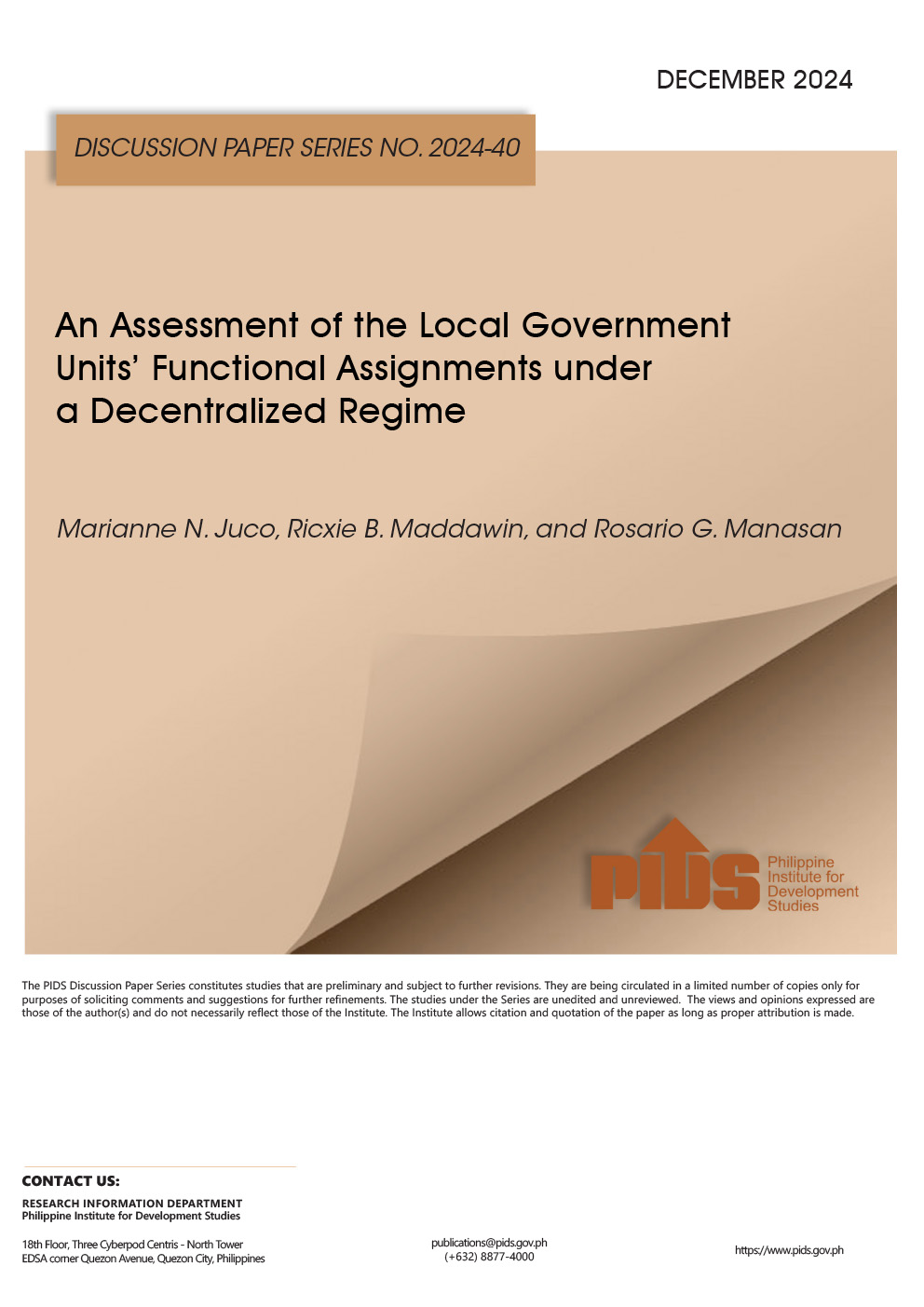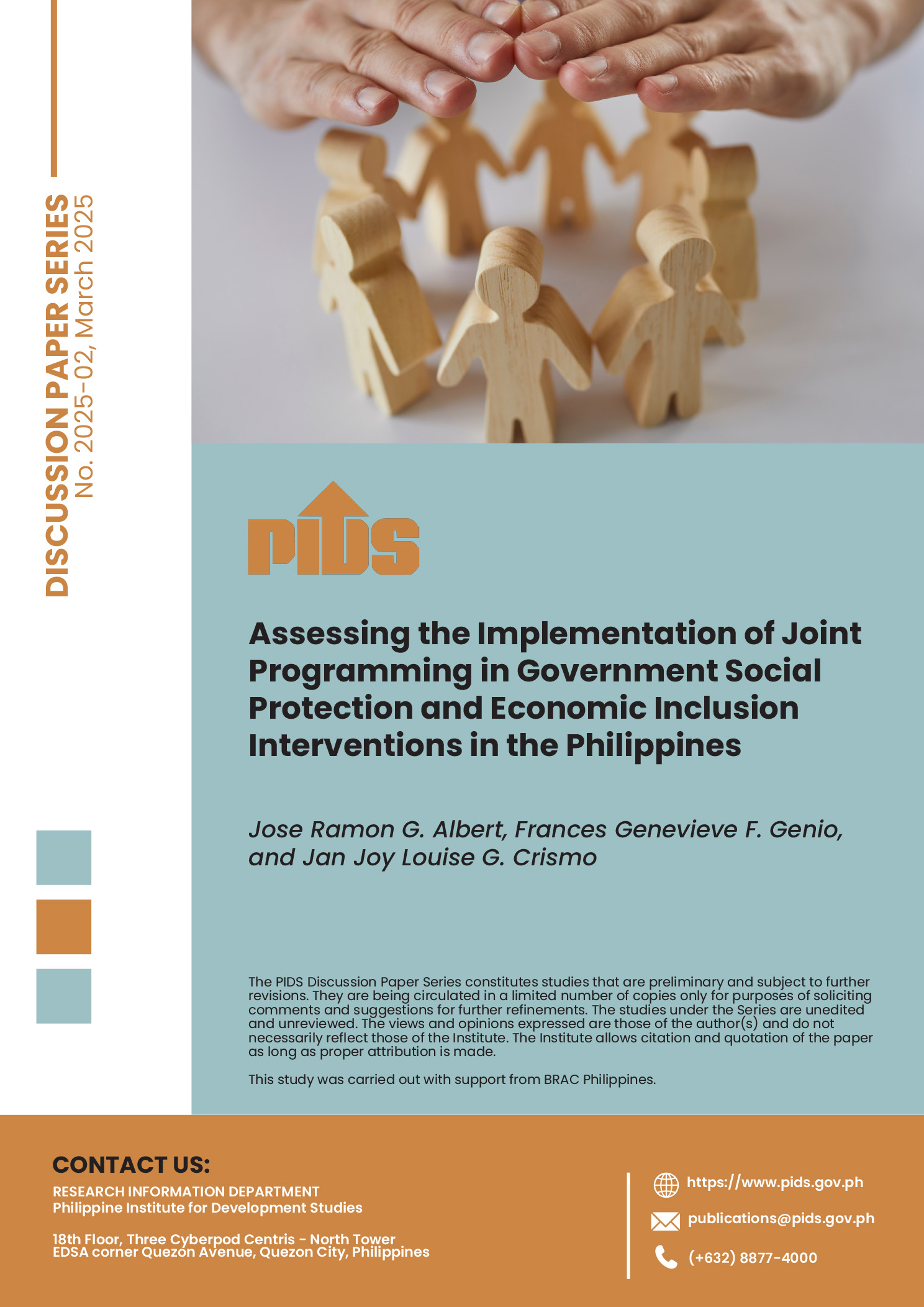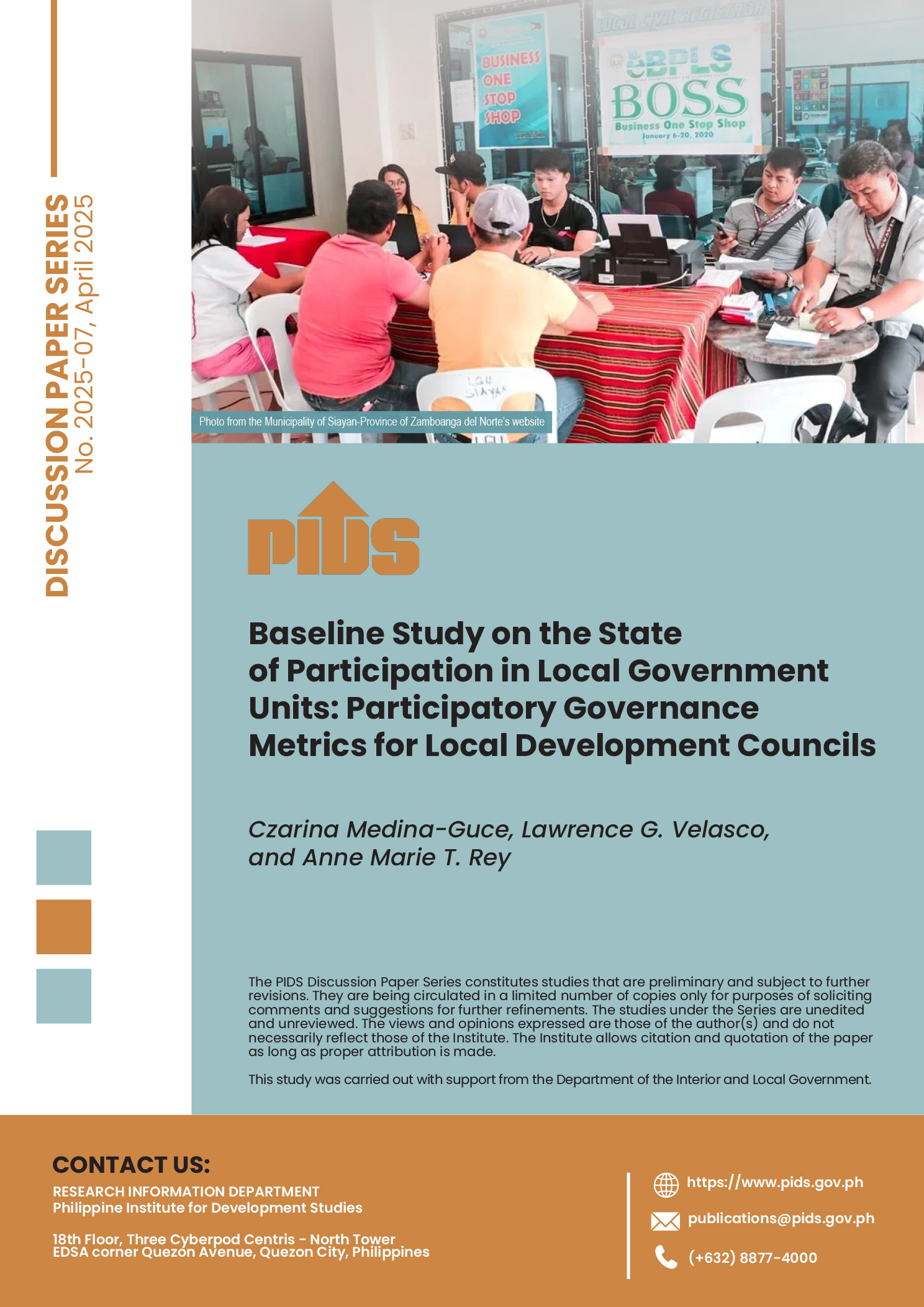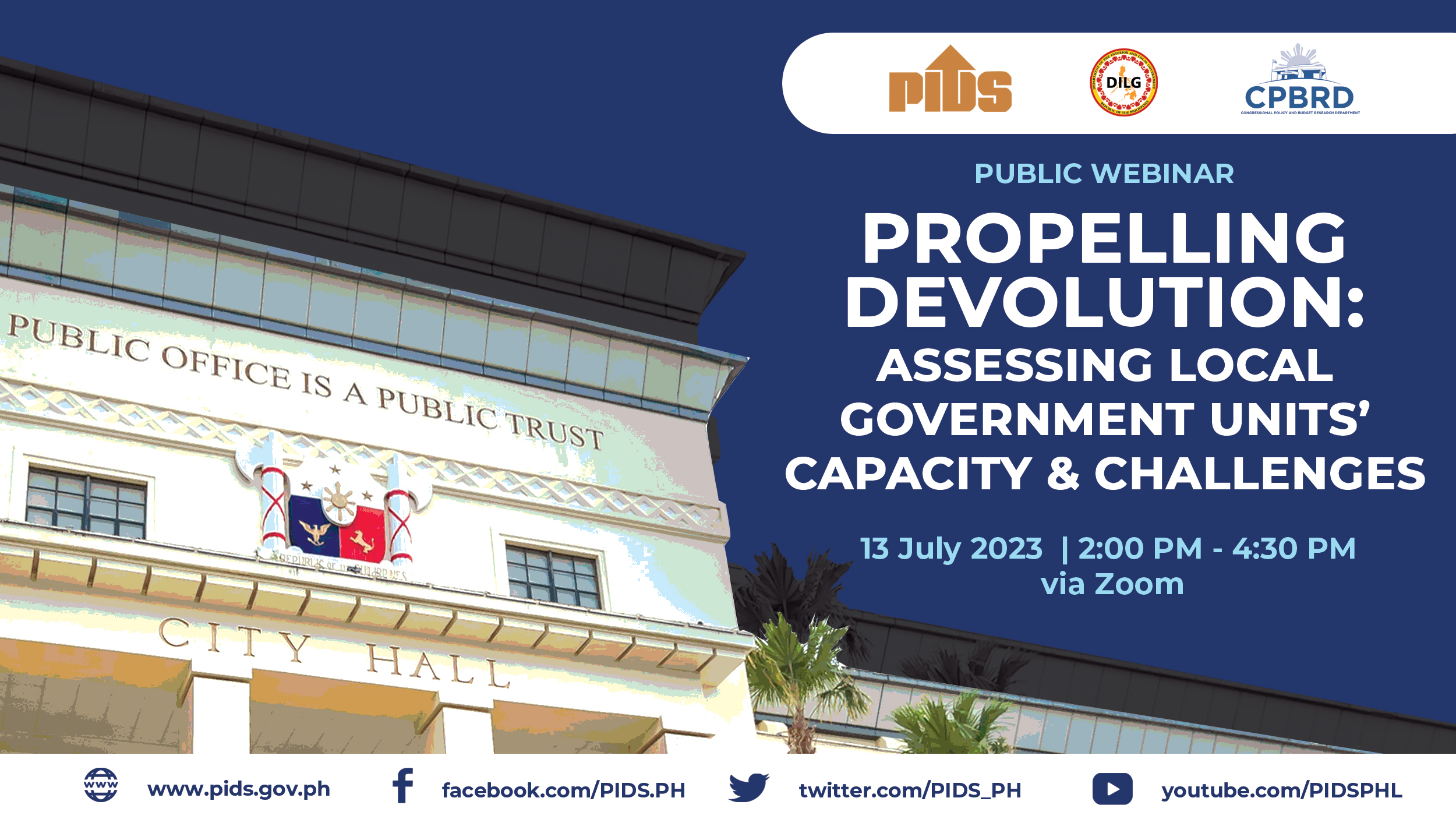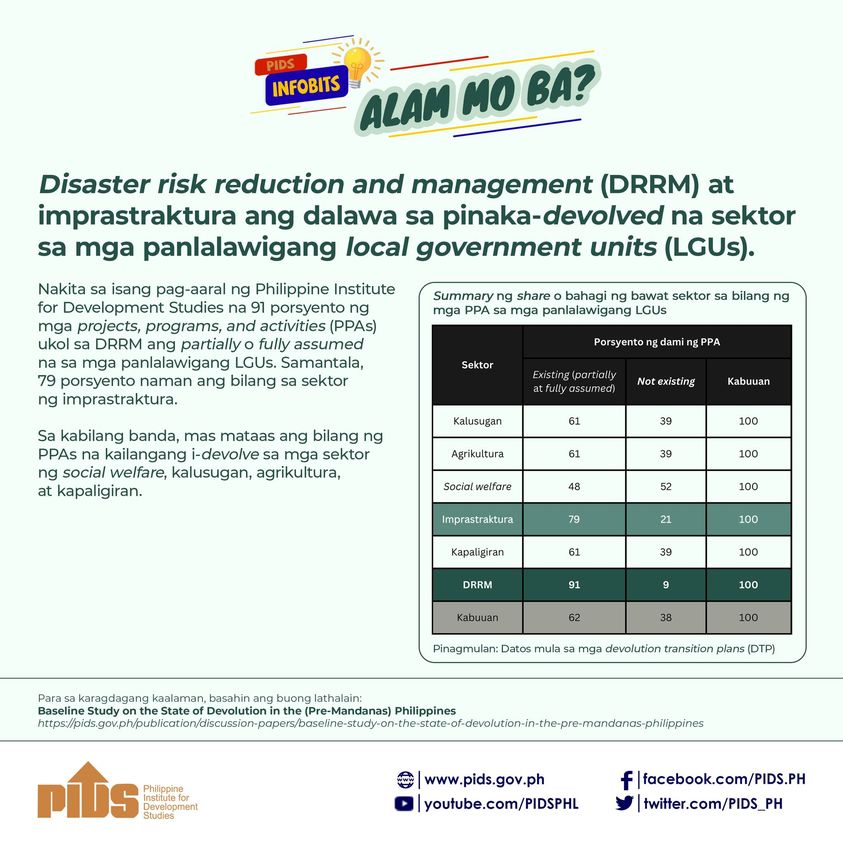MANILA, Philippines – The government should strongly develop the loan repayment capabilities of agrarian reform beneficiaries (ARB) to sustain the Agrarian Production Credit Program (APCP) and enable them to graduate to formal lending by the private sector, the Philippine Institute for Development Studies said in a new policy note.
The APCP is a P2-billion credit program for agrarian reform beneficiaries (ARBs) jointly implemented by the Department of Agriculture (DA), Department of Agrarian Reform (DAR) and state-owned Land Bank of the Philippines (LBP).
It was created to finance for a period of five-years the production and enterprise projects of agrarian reform beneficiaries who are not yet eligible for financing under the LBPs regular lending programs or other formal means of obtaining credit. Because of limited financial literacy of the target clientele, borrowing and payment requirements have been simplified.
In a paper titled How to improve smallholders’ access to formal credit: Lessons from the Agrarian Production Credit Program, PIDS president Gilberto Llanto and researchers Ma. Piedad S. Geron and Jocelyn Badiola said that while the APCP seems to have accomplished its objectives of providing credit to ARBs and ARB Organizations (ARBO), it has not capacitated its beneficiaries to qualify for the regular lending program of the LBP.
“Loan repayment, not just provision of credit, should be equally emphasized to sustain the program,” said the researchers.
“In terms of enhancing capabilities, the capacity- building assistance received from APCP has been mostly random. While most of the trainings may be considered demand based, they were not designed to systematically build and strengthen the capacities of the ARBO to become viable institutions that can eventually qualify and graduate into the LBP regular lending program,” they added.
The APCP is a P2-billion credit program for agrarian reform beneficiaries (ARBs) jointly implemented by the Department of Agriculture (DA), Department of Agrarian Reform (DAR) and state-owned Land Bank of the Philippines (LBP).
It was created to finance for a period of five-years the production and enterprise projects of agrarian reform beneficiaries who are not yet eligible for financing under the LBPs regular lending programs or other formal means of obtaining credit. Because of limited financial literacy of the target clientele, borrowing and payment requirements have been simplified.
In a paper titled How to improve smallholders’ access to formal credit: Lessons from the Agrarian Production Credit Program, PIDS president Gilberto Llanto and researchers Ma. Piedad S. Geron and Jocelyn Badiola said that while the APCP seems to have accomplished its objectives of providing credit to ARBs and ARB Organizations (ARBO), it has not capacitated its beneficiaries to qualify for the regular lending program of the LBP.
“Loan repayment, not just provision of credit, should be equally emphasized to sustain the program,” said the researchers.
“In terms of enhancing capabilities, the capacity- building assistance received from APCP has been mostly random. While most of the trainings may be considered demand based, they were not designed to systematically build and strengthen the capacities of the ARBO to become viable institutions that can eventually qualify and graduate into the LBP regular lending program,” they added.

